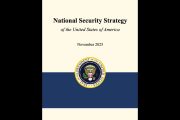
More countries around the world are cutting the time between the initial COVID inoculation and boosting in the latest display of the questionable efficacy of the COVID shots. Needless to say, there are virtually no studies on the safety of such practice. At the same time, getting a booster will be a prerequisite for maintaining a “fully vaccinated” status that, in turn, will be a mandatory condition for keeping one’s COVID passport current.
Australia
Federal Health Minister Greg Hunt announced Australians who have completed their primary course of COVID-19 vaccination no less than four months ago will now be able to receive a booster dose from January 4, 2022, citing advice from the Australian Technical Advisory Group on Immunization (ATAGI). That change will see approximately 7.5 million Australians “eligible” for their booster dose as of January 4.
In addition to that, starting January 31, the interval will be shrunk to three months, making 16 million of Australians “eligible” to get a third dose.
“Advice to the Government from ATAGI indicates that further bringing forward booster doses is likely (sic!) to increase protection against infection with the Omicron variant based on international and Australian data observed over recent weeks,” reads the minister’s announcement.
The boosters are already announced to play a major role in Australians’ social life. In the state of Victoria, for example, those who wish to remain a part of the “vaccinated-only” economy will be mandated to take a booster. That, presumably, could mean as many boosters and as often as the government would “recommend.”
Germany
Earlier this week, Germany’s Permanent Vaccination Commission (STIKO) recommended that people over 18 years old using mRNA Covid vaccines, such as those made by Pfizer-BioNTech and Moderna, get boosters three months after their second dose in a two-shot series and a four-week interval for one-dose vaccines, such as the Johnson & Johnson vaccine.
Hot on the heels of Israel, Germany has also announced the rollout of a fourth dose of the shot. The Health minister specified that such an “offensive” approach is needed to tackle the Omicron, as the country has ordered a strain-specific booster from Pfizer-BioNTech. The delivery is reportedly expected no earlier than April 2022. That likely means that the Germans will have to roll up their sleeves yet again.
The country is closely considering compulsory COVID vaccinations, a policy that is likely to become law in February 2022. Numerous German politicians are calling on the federal lawmakers to officially limit the recognition of individuals as being “fully vaccinated” to six months after their last shot, citing the waning efficacy of the vaccines after that period.
Switzerland
Citing the “expectations that the Omicron variant will spread rapidly,” the health authorities recommended this week everyone aged 16 years and older to get a booster as early as after four months of them getting two initial doses.
Those who got a one-shot J&J are urged to return after four months.
The Philippines
Also this week, the county has reduced the wait for a booster shot to three months if one was jabbed with two-dose shots, and to two months for those who got J&J. The authorities are recommending mixing and matching the vaccine types, which is just as unstudied as the rest of the vaccination practices.
As if admitting experimental nature of such approach, the country’s Health Secretary Francisco Duque III said, “We are exploring all possible options to safely mitigate the effects of more transmissible variants of COVID-19.”
The United Kingdom
The Brits pioneered halving the initially recommended interval of six months between the inoculations.
In late November, the Joint Committee on Vaccination and Immunization (JCVI) advised that severely immunocompromised people should receive their boosters three months after their primary course of three vaccinations, The Guardian reported.
Trying to explain the rush of such a radical and unstudied measure, the Health Secretary Sajid Javid implied that the threat posed by the Omicron pushes the authorities to urgently use whatever is available. No time to double check.
“Our experience of fighting this virus has shown us that it’s best to act decisively and swiftly when we see a potential threat, which is why we’re building our defenses and putting these measures in place without delay,” Sajid said.
Taiwan
On December 14, the government decided to offer a third dose after just three months, the local news media reported.
“Because Omicron is now widespread, the booster third shot would help lessen the severity of symptoms and reduce the death rate,” spokesperson for the government’s COVID-19 taskforce Taweesin Wisanuyothin claimed.
Boosters vs the Omicron
The preliminary risk-benefit analysis of the speedy readmission of COVID shots against the Omicron variant of SARS-CoV-2 suggests that the practice may be quite risky.
First of all, there are no studies on its safety, while the non-establishment medical professionals raise serious concerns on the harm the repeated boosters would do to people’s health.
Among them is Dr. Peter McCullough, a world-renowned cardiologist, who explained that due to the widespread memory-type antibody response to SARS-CoV-2, the antibodies induced by the COVID vaccines can bring about the destruction of any cell that manufactures the SARS-CoV-2 spike protein, particularly in circulation.
“With repeated doses of the COVID-19 vaccines, the spike protein will progressively accumulate in the brain, heart and other vital organs exceeding the rate of clearance. The spike protein is well known to cause disease, such as myocarditis and neurologic damage as well as injuring blood vessels and promoting blood clotting,” warned McCullough.
Moreover, even some of the official bodies have not so long ago warned against the use of COVID boosters.
Back in August, the European Commission (EC) has warned the bloc against unilaterally rolling out additional boosters, maintaining that there was not sufficient information on potential risks linked to giving patients a third dose.
Also in August, the World Health Organization rejected calls for COVID boosters, arguing that data on them was “not conclusive.”
While admitting the additional shots do generate a robust immune response, WHO chief scientist Soumya Swaminathan noted that “when we talk about vaccines, it’s not just the efficacy, what happens … when you give a third dose of an mRNA vaccine or any other kind of vaccine?” Swaminathan, however, signaled that the advice may change due to the new variants.
Some four months later, the WHO changed its advice and recommended immunocompromised people to get a third dose after six months of the initial inoculation.
At the same time, the data coming from South Africa, Omicron’s ground zero, is encouraging and shows that patients infected with that strain are 80 percent less likely to land in the hospital compared to those with Delta.
In addition to that, the trajectory of the strain adds even more to the optimism: in South Africa, the number of cases connected to Omicron has crashed just as rapidly as it peaked.
Speaking on Fox News last week, Dr. Robert Malone called the strain a “Christmas present,” citing its extremely infectiousness, “very low” rate of severe reactions and deaths, and a strong immunity that it produces.
Then, of course, there are truly safe, effective and widely available early treatments that are still remain largely ignored by the medical establishment.





